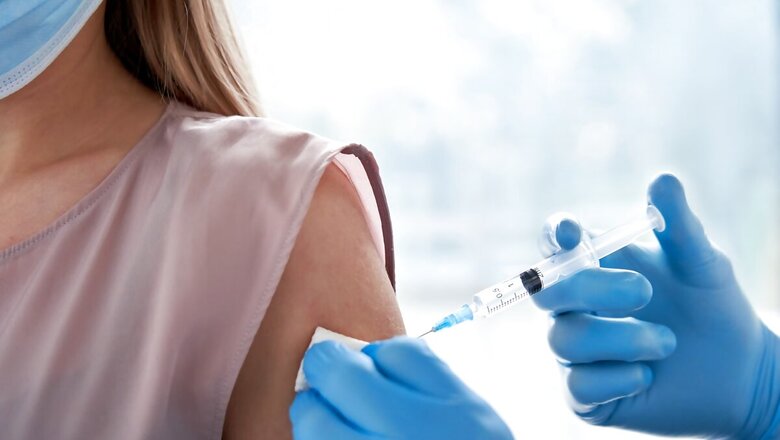
views
Immunocompromised individuals are in great dilemma regarding COVID vaccination. There are many doubts about the efficacy and safety of vaccine. Discussion on this topic may reduce anxiety and help decision making about vaccination.
What is immunity?
Immunity is defense mechanism of our body to protect from infections, in simple terms, it is the power to fight with anything that the body perceives as foreign (Antigen). There are two types of immunity, innate and acquired. Innate which is with us since our birth and acquired which we acquire over period of time due to external stimuli. When corona virus enters, our body detects it as antigen. Our immune system starts fighting with it and at the same time memorizes the structure of virus to acquire specific immunity for the similar antigen if it infects second time. In immunocompromised individuals this power is less than those who are immunocompetent.
Who are immunocompromised?
An immunocompromised individual is one whose immune system is not able to fight effectively with antigens. Individuals who are having poor nutrition (mostly low socio economic status or having some malnutrition syndrome) or those having chronic diseases like AIDS caused by HIV infection (human immune deficiency virus), Tuberculosis caused by mycobacterial infection, uncontrolled diabetes, COPD because of chronic smoking, Cancers and those who are on drugs used to suppress immunity in treatment of cancer (cancer chemotherapy and radiotherapy) or after organ transplant.
Are they more vulnerable for infection?
Yes. As their immune response to antigen is compromised they are prone to get infections like Corona.
Do they need vaccination?
Yes, because immunocompromised individuals are more vulnerable to corona infection hence they definitely need vaccination.
Is vaccine equally effective in them as compare to immunocompetent individuals?
Vaccine is an antigen similar to structure of virus but without pathogenicity i.e. virus without power to cause the disease. It boosts the immune system to produce natural antibodies in response to this non-pathogenic antigen. But in immunocompromised individuals this power is less and hence are expected to produce less immunity as compare to immunocompetent individuals.
Is any test available to know the status of immunity developed after infection or vaccination?
Yes. Laboratory tests are available to detect the amount of antibodies developed in response to infection or vaccination.
How to know whether the antibodies detected in test are adequate?
Although the tests are available but we still don’t know the quantity of antibodies required to protect us from further infection or if it can protect us from different variants of virus. It can only give us information that the individual is already infected or vaccinated.
Are individuals with no detectable antibodies in their blood more prone to infection?
Presence or absence of antibodies cannot guarantee the protection from further infection. Individual with good amount of antibody can also get infected or the individual with no antibody can be immune. So far we do not have tests to say anything with certainty.
What is the use of vaccination then?
Vaccination has been seen to protect a large percentage of individuals from getting infected or if at all infected, the disease will be mild. There are fairly good chances of survival for those who are vaccinated as compare to those who are not.
Who should get vaccinated, immunocompetent or immunocompromised?
All irrespective of their immune status should get vaccinated. More is the number of vaccinated immunocompetent individuals less is the chance of immunocompromised to get the infection. More is the number of vaccinated immunocompromised individuals less is the chance of death if infected.
Irrespective of the fact whether antibodies develop after vaccination or not, every individual should get vaccinated. Collectively more the vaccinated population, less the chance of getting infected or dying from COVID.
Read all the Latest News, Breaking News and Coronavirus News here.



















Comments
0 comment